Discover a Brilliant New Way to Build Your Child’s Self-Esteem
What does self-esteem mean to you? As a parent raising small children I often think about self-esteem. How can I raise my child to speak up for herself, to take pride in her work and have confidence in her abilities? How do I build self confidence in my child without causing her to be entitled! It’s a tricky balance.
It’s also something that takes time and effort. As a school psychologist I often worked on this skill with my students. It was something we taught; Something that was intentionally described to the young elementary students during our counseling sessions.
Over my years of experience in psychology I’ve learned a few tricks and tips to build self-esteem in kids naturally.
So today I want to share with you how you can use self-talk as a tool for building confident kids.
So First: What is Self-Talk?
First, we need to figure out what self-talk is!
For both adults and children, self-talk is what you say to yourself out loud or what you think to yourself in your head. It can be positive or negative.
Many times we don’t realize that we even have thoughts running through our heads. But as kids gain metacognition (thinking about their thinking) they can start to identify whether their thoughts are negative or positive. Metacognition starts to develop in the preschool years and is full developed by age 10.
Here are two examples of self-talk in a kindergartner:
“I just want to play ponies. Why won’t she play with me? That’s so annoying. I guess she doesn’t like me. No one wants to be my friend”
“I’m really wanting to play ponies. Maybe I can just play by myself and my friend will join me when she is ready”
Can you guess which is positive and which is negative?
As I said before, kids and many adults are not aware of their inner dialogue or personal conversation.
Whether you realize it or not your inner dialogue never ends. We constantly make quick judgments, encourage ourselves and/or complain throughout the day. When you become more aware of your inner thoughts and catch yourself thinking “negative” thoughts, you are able to change your self-talk.
How Does Self-Talk Relate to Self-Esteem?
George Mason University conducted a study in 2007, published in Early Childhood Research Quarterly, on preschoolers and self-talk. They found that 5 year olds did better on motor tasks when they talked to themselves out loud versus when they were silent.
The study also found 78 percent of the children performed either the same or better on a performance task when speaking to themselves than when they were silent. The author believes we should encourage this type of self talk in kids.
Another study done by Burnett & McCrindle (1999) found that positive and negative self-talk has a mediating effect on children’s self-esteem.
Further, they believe their results highlight the importance of parents and teachers saying positive things to children and reducing negative statements made to children by their peers in terms of self-esteem development.
So what does this mean? It means self-talk affects or alters self-esteem.
So How Do We Encourage Our Kid’s to use Positive Self-Talk?
Recognition is always the first step! Before a child can change their self-talk they need to be able to understand what self-talk is. Talk to your child about their thoughts. Do they realize they have different thoughts and feelings running through their heads?
If you are looking for simple suggestions on how to teach your child about self-talk I suggest reading, How to Teach Kid’s Positive Self-Talk.
Now most kids probably don’t need a significant amount of intervention when it comes to positive self-talk.
If you are looking for an easy way to encourage positive self-talk, one of the best tips I heard as a school psychologist was to ask your child questions.
Praise is good from parents and teachers, but it’s even better when kids say positive things about themselves.
Here are a few examples of questions you can ask to build your child’s self-esteem:
#1: “How did you pull off that difficult task?”
#2: “I know a lot of kids who would have given up by now. How did you manage to keep going?”
#3: “That was frustrating. How did you stay calm?”
#4: “I know you were really disappointed you couldn’t play with the toy. How did you make yourself feel better?”
These questions get kids to think about how they were able to do something hard. When you ask questions like this your kids also discover their strengths. It may also help them identify their best coping skills. Every child deals with stress, anxiety and disappointment differently.
What works for one child may not work for another. It’s best to keep an inventory of what works and what doesn’t so you can encourage skills such as counting to 3, ripping paper, screaming into a pillow or walking away the next time your child gets frustrated.
What tools do you use when building self-esteem in your kids? I’d love to hear your thoughts in the comments below!
Also be sure to follow Heart of Deborah on Pinterest for more parenting articles and encouragement.



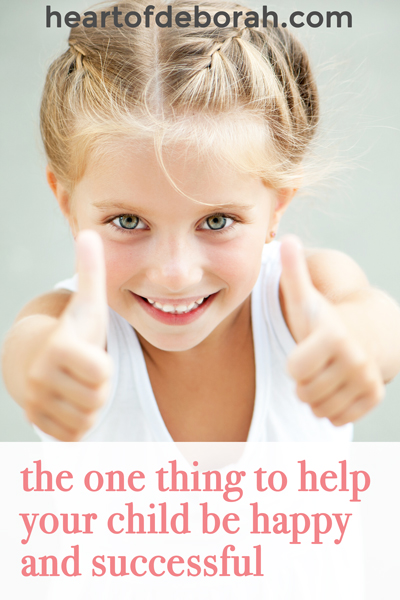

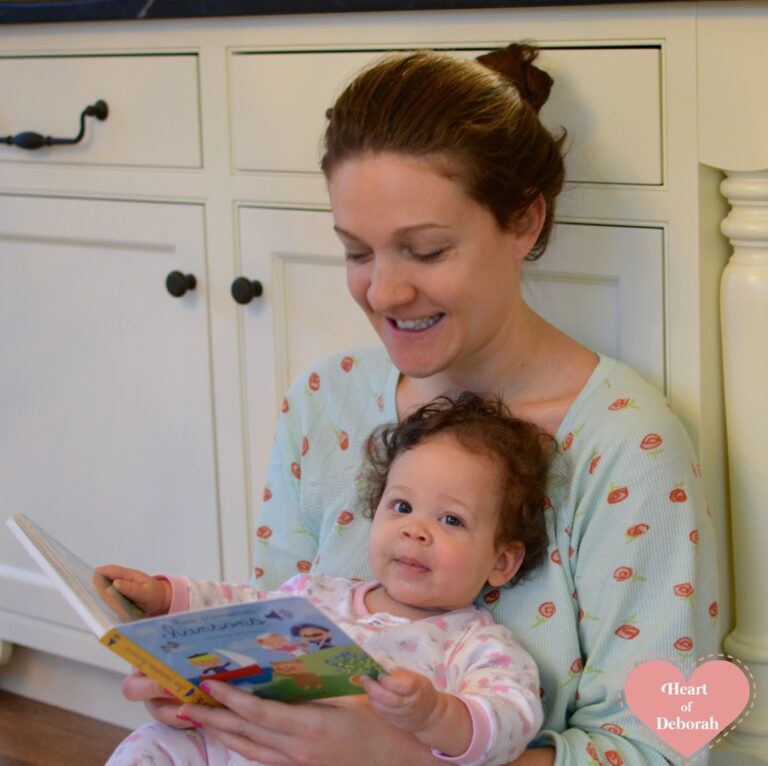

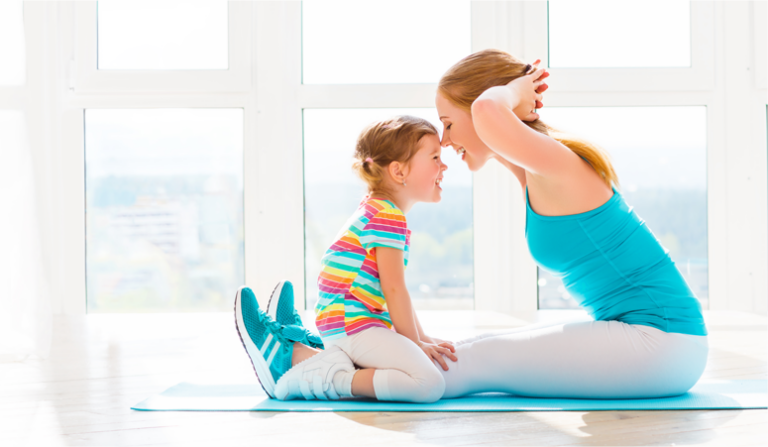

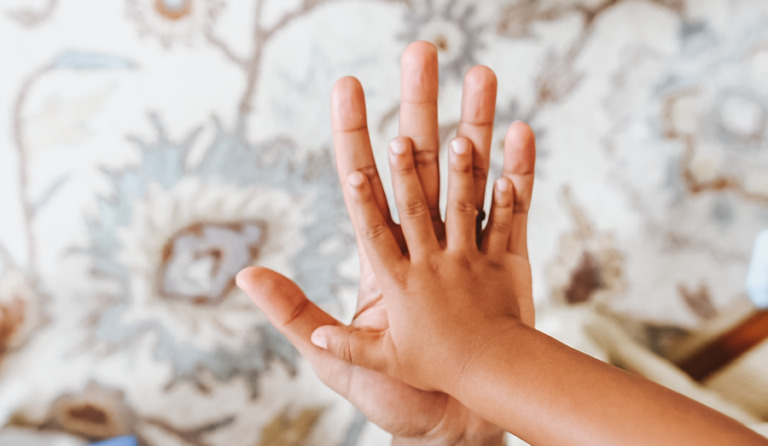
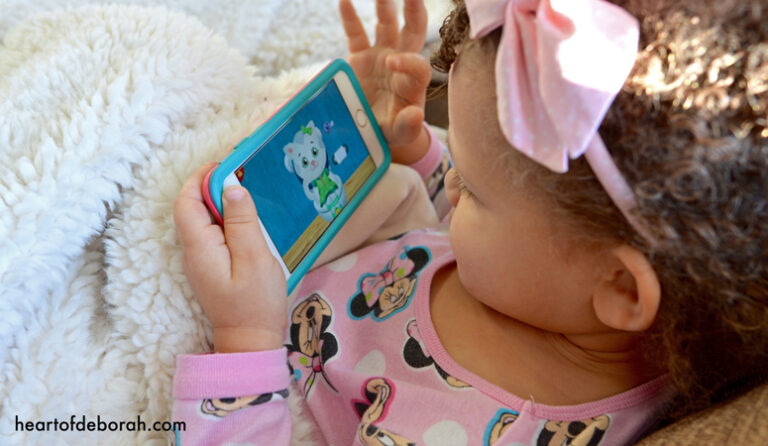
Great article! I know I could use some help in this department and especially teaching my kids. Thanks for the links! Going to read them now.
I love this! I’m going to try the questions with my 5 year old tonight when he’s working on his legos!
I need to master positive self talk so that I can impart it to my kids. I get worked up very easily. I know that they watch more of what I do than what I say. Thank you for creating the awareness.
This is very helpful. We often do not realize what we are saying to ourselves.
loving this post! I’ll have to keep this in mind when I start having kids. and your child’s hair!!!!! gorgeous 🙂
Good strategies! I love using questions. I’ve been using noticing statements and then saying, “you can be so proud of that” when they are sharing their work with me.